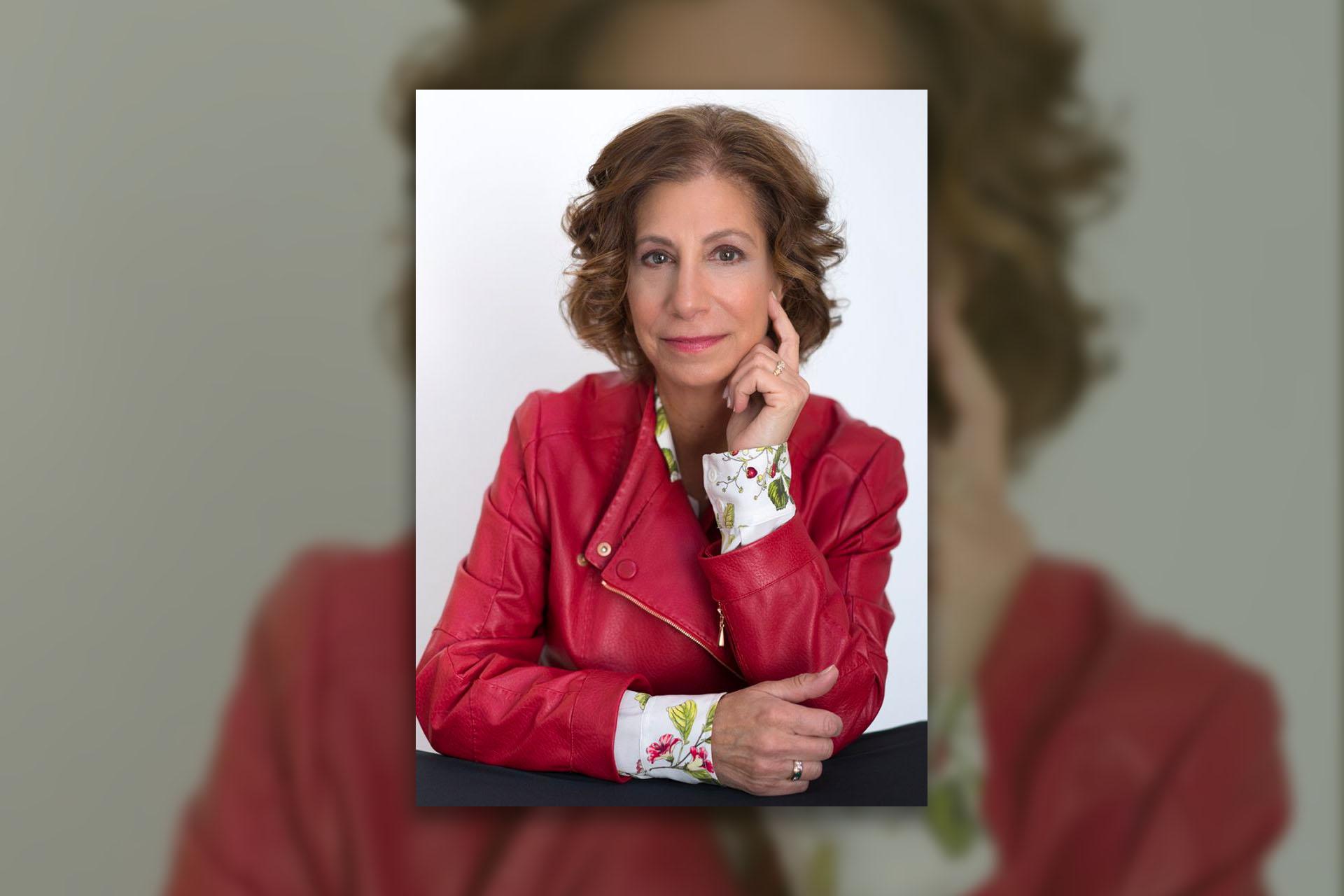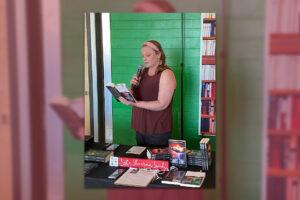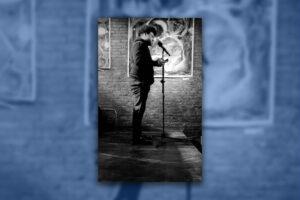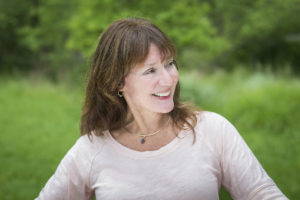On Saturday, October 14th, I interviewed award-winning crime fiction author Jodé Millman. As an avid reader of crime fiction, ex-forensic science major, and aspiring writer, I was drawn to Millman’s work. Millman had been an attorney for many years but then decided to funnel her knowledge of the law into writing. I jumped at the opportunity to speak with her at the third annual Saratoga Book Festival in Saratoga Springs, NY. We began at the beginning of her writing career.
Jodé Millman About 2010, I decided it’s time. Time for me to sit down and I’m going to give [writing] a shot. I write a different kind of crime fiction…. What I like to do is do a lot of research as to the crimes that have happened in the Hudson Valley. I decide which ones are of interest to me, that represent different aspects of the law, and also have a message. Then I will use those as the seedlings for going forward and creating my stories.
Angelina Mandell I asked Millman what particular strategies take her work from her mind to the page.
JM The first thing you do is research. I start off by looking at the crime. What is the crime I’m going to talk about? Going into the court records, talking to people who are familiar with the crimes, seeing what the law is that pertains to the crimes…. At the same time I’m looking at the crime, I’m also thinking about how can I effectively tell that story.
AM In the latest book in Millman’s “Queen City Crimes” series, The Empty Kayak, a character drowns after kayaking on the Hudson River. In the acknowledgements, Millman noted that she enlisted a kayaking expert to aid in her writing of such scenes. I asked her about the lengths she goes to for accuracy in fiction and why it is important to convey such accuracy.
JM The first thing that I did [to learn about kayaking] was make my husband go kayaking with me on the Hudson. I wanted to put myself in the [victim’s] shoes. We weren’t in danger, but what’s it like to kayak on the Hudson? Especially when it comes to the scene where the storm arises, how would a kayak be affected? I was lucky enough that my dry cleaner’s son is a kayaking expert!
If you’re writing crime fiction, you have to make it believable. I always want my readers to walk away saying, “Jodé knows what she’s talking about,” and, “I’ve learned something.” When I read a book–I like historical fiction–I like to know that what that writer is telling me is the truth. I want to know that when I walk away from it that I’ve still learned something, and I want my readers to be able to do the same thing.
AM Other research for her crime fiction stories comes easier to Jodé Millman, as she is able to pull from her background as an attorney many connections and knowledge of the legal aspect of crimes. I asked how this provides her with a unique perspective.
JM Well, I’ve lived it. Especially with Hooker Avenue, and the Midnight Call; those were cases where I had a tangential relationship. The Midnight Call was a story inspired by my junior high school history teacher, who murdered a kid. I knew the family, the murdered victim. I knew the killer! How many people can say they knew the killer? I knew the cops, I knew the judges; I [worked] in the system, so I knew. And then with Hooker Avenue, the prostitutes who were being abducted and killed were literally being picked up off of the steps of my law office…I went to court. I was able to go to the hearings and see what was going on. So that really made a huge difference.
AM I asked if The Empty Kayak was also a case Millman was connected to. She explained it was inspired by a real case in 2019, one out of Beacon, New York, on a little island off the coast called Bannerman’s Island. A man and his fiance, Angelica Graswald, went kayaking on the Hudson River, but only Graswald returned.
JM When I go on my book tour, I’ve got a whole presentation about the crime behind the crime. [Graswald] actually served 32 months for being criminally negligent–she was never found guilty of his murder, but she could’ve helped him and she didn’t. She let him drown.
AM Pivoting from her books, I asked Millman about her project, The Writer’s Law School.
JM I would go to conferences and people would come up to me and they would say, “Jodé! I know you’re a lawyer! What about this question?” I realized that nobody was answering the basic questions as to how writers should protect their rights. So I said, this is the opportunity for me to be able to reach out…, create a program, and do it very simply, in an entertaining way. “This is what you’ve got to do: A, B, C, D, E, F, G.” It’s been really successful and well accepted.
AM Millman told me that she is developing a presentation on writers and AI, a current hot topic. She will be presenting on this topic this November at the Women in Publishing Conference.
JM How do we handle it? What is AI? How is AI abusing the rights of writers? What can we do to stop it?
AM I asked for Millman’s thoughts on book banning, another hot topic, as National Banned Books Week had just concluded.
JM I’m constantly horrified. There’s no need–there’s absolutely no reason–to ban books. People should be able to have freedom of choice and freedom of expression. I do not believe in that kind of censorship. There’s a Supreme Court case that specifically says that a school district cannot ban books simply because they disagree with the content of the book, and nobody seems to be bringing up this case! Nobody seems to be supporting the law of the land and challenging that. This is really a very sore subject [for me].
AM Finally, Millman reflected on her experience at the Saratoga Book Festival and how such events benefit authors.
JM I’m honored they asked me to participate. [As for the benefit:] Exposure.
AM I asked Millman what advice she gives to new authors.
JM Persevere. Just stick with it, because it can be a long journey. It took me ten years to get published, but it will happen. It’s like when you think about ‘there’s a college for every kid.’ There’s a publisher for every writer.






I enjoyed reading Miss Mandell’s interview with Jode Millman. The questions that Miss Mandell asked were clearly well thought out and led me to have an understanding of the author’s methods of research, and how she developed her story ideas into the books that she has written. I will certainly make sure to purchase one of her books, as I had not read any before reading this interview. It was also interesting to find out that this author is well versed on the importance of all authors being aware of their legal rights as authors. I had not thought of that aspect of an author’s work previously. It’s good to know that in Miss Millman’s work in that respect, there is a resource for young authors. Thank you to Miss Mandell for this thought provoking interview.